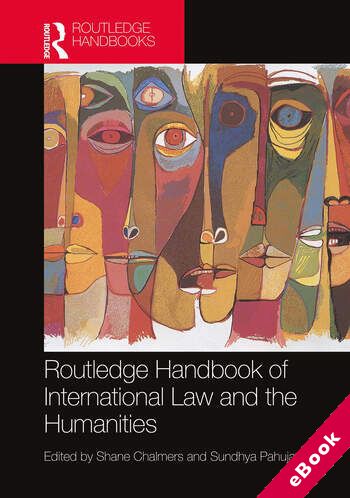
The device(s) you use to access the eBook content must be authorized with an Adobe ID before you download the product otherwise it will fail to register correctly.
For further information see https://www.wildy.com/ebook-formats
Once the order is confirmed an automated e-mail will be sent to you to allow you to download the eBook.
All eBooks are supplied firm sale and cannot be returned. If you believe there is a fault with your eBook then contact us on ebooks@wildy.com and we will help in resolving the issue. This does not affect your statutory rights.
This handbook brings together 40 of the world’s leading scholars and rising stars who study international law from disciplines in the humanities – from history to literature, philosophy to the visual arts – to showcase the distinctive contributions that this field has made to the study of international law over the past two decades.
Including authors from Australia, Canada, Europe, India, South Africa, the UK, and the USA, all the contributors engage the question of what is distinctive, and critical, about the work that has been done and that continues to be done in the field of ‘international law and the humanities’. For many of these authors, answering this question involves reflecting on the work they themselves have been contributing to this path-breaking field since its inception at the end of the 20th century. For others, it involves offering models of the new work they are carrying out, or else reflecting on the future directions of a field that has now taken its place as one of the most important sites for the study of international legal practice and theory. Each of the book’s six parts foregrounds a different element, or cluster of elements, of international law and the humanities, from an attention to the office, conduct, and training of the jurist and jurisprudent (Part 1), to scholarly craft and technique (Part 2), to questions of authority and responsibility (Part 3), history and historiography (Part 4), plurality and community (Part 5), as well as the challenge of thinking, and rethinking, international legal concepts for our times (Part 6).
Outlining new ways of imagining, and doing, international law at a moment in time when original, critical thought and practice is more necessary than ever, this handbook will be essential for scholars, students and practitioners in international law, international relations, as well as in law and the humanities more generally.